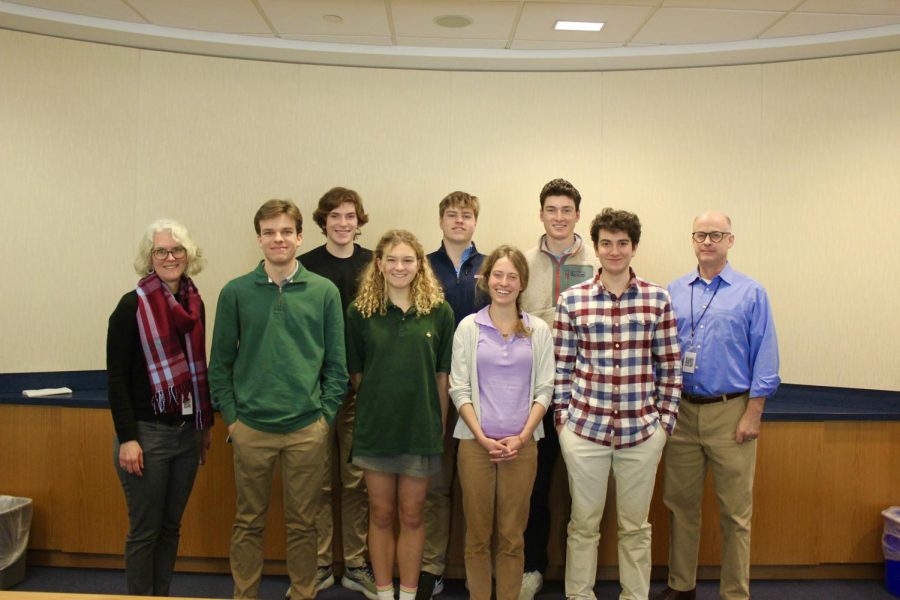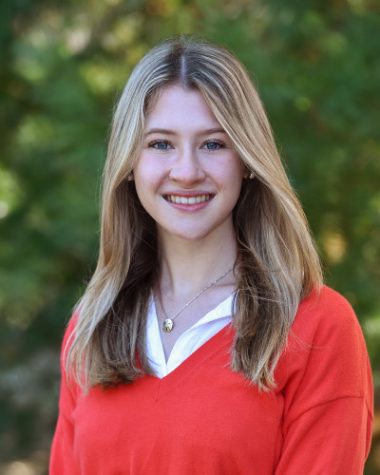Global Scholars: A Highlight on Laura Haley
February 17, 2023
At St. Luke’s, the Global Scholars Program is offered to seniors who seek a deeper understanding of our world. These students build their projects on a strong foundation in liberal arts, social and natural sciences, and world languages. Once accepted into the program, students explore a question related to their specific interest in global affairs, culminating in a presentation delivered at the SLS Scholars Symposium in April.
One student in the program this year is Laura Haley ‘23, whose research question is: how has the nature of women’s involvement in the Italian Mafia and Mexican Cartels changed over time, and how are their claims to powerful positions empowering, exploitative, or both? In her research, Haley is exploring both of these criminal organizations to better understand their history and how women fit into their respective cultures.
Haley has always been fascinated by organized crime groups and the intricacies of their operations but was not interested in women’s roles in them until this year: “We tend not to think of women as being criminals, but the reality is they are not only capable of being criminals, but they are actually really good at it. I have always been drawn towards women who buck traditional conceptions of womanhood, and the female criminal is the perfect example of that.”
Haley was first exposed to crime shows through her dad, and the crime shows sparked her interest in organized crime. She specifically watched two shows that relate to her project: Narcos Mexico, where a female mob boss makes her way into one of the most powerful circles of drug traffickers, and Queen of the South, where a woman constructs a drug trafficking empire. “However powerful both of these women seemed, I wanted to see if their criminal eminence was reflective of reality, which compelled me to do this project specifically,” Haley said.
So far, Haley’s biggest challenge has been researching. “The Mafia and Cartel value secrecy and are, for the most part, unresponsive to and skeptical of journalists and researchers looking to get a closer look at their operations,” said Haley. Even though sources are hard to come by, Haley has found an excellent support system at St. Luke’s: “Our librarian Ms. King has been extraordinarily helpful by getting in touch with college libraries in the local area so I can access resources that are essential to my research,” she said.
Haley has recently submitted the first draft of her research paper and will start preparing for her presentation in April. The presentation is also not without its challenges, as scholars have to figure out what parts of their research to include and leave out. Haley elaborated on this process, saying, “For the next couple of weeks I will probably be starting to focus on what to prioritize, which I think perhaps might be the hardest part of the project.”
Despite the challenges she has faced, Haley has found her project rewarding: “I have really enjoyed learning about female empowerment within the realms of some of the most traditional and rigid criminal organizations in the world, as it suggests that lifting restrictions on women is all the more possible in civil society. It is equally as exciting to learn about how integral women are and have been, in these organizations. Although they hardly get recognition for it, it is likely that both the Mafia and Cartel could not have survived without the help of women.”
When giving advice to aspiring scholars, Haley said, “Time management is so important, especially because sometimes there are long breaks in between when certain things are due and by managing your time well, it makes the project seem a little less daunting… I would also add, go global!”





Cessa • Mar 27, 2023 at 2:45 pm
I echo Haley’s sentiment: go global!! Great article Hannah!